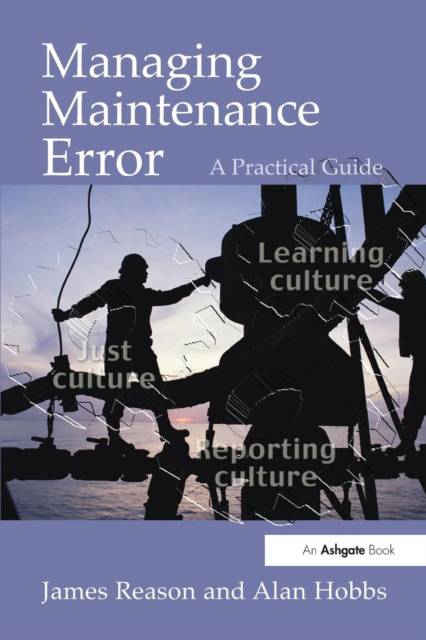
- Retrait gratuit dans votre magasin Club
- 7.000.000 titres dans notre catalogue
- Payer en toute sécurité
- Toujours un magasin près de chez vous
- Retrait gratuit dans votre magasin Club
- 7.000.0000 titres dans notre catalogue
- Payer en toute sécurité
- Toujours un magasin près de chez vous
99,45 €
+ 198 points
Format
Description
Situations and systems are easier to change than the human condition - particularly when people are well-trained and well-motivated, as they usually are in maintenance organisations. This is a down-to-earth practitioner's guide to managing maintenance error, written in Dr. Reason's highly readable style. It deals with human risks generally and the special human performance problems arising in maintenance, as well as providing an engineer's guide for their understanding and the solution. After reviewing the types of error and violation and the conditions that provoke them, the author sets out the broader picture, illustrated by examples of three system failures. Central to the book is a comprehensive review of error management, followed by chapters on: - managing person, the task and the team; - the workplace and the organization; - creating a safe culture; It is then rounded off and brought together, in such a way as to be readily applicable for those who can make it work, to achieve a greater and more consistent level of safety in maintenance activities. The readership will include maintenance engineering staff and safety officers and all those in responsible roles in critical and systems-reliant environments, including transportation, nuclear and conventional power, extractive and other chemical processing and manufacturing industries and medicine.
Spécifications
Parties prenantes
- Auteur(s) :
- Editeur:
Contenu
- Nombre de pages :
- 200
- Langue:
- Anglais
Caractéristiques
- EAN:
- 9780754615910
- Date de parution :
- 08-05-03
- Format:
- Livre broché
- Format numérique:
- Trade paperback (VS)
- Dimensions :
- 155 mm x 231 mm
- Poids :
- 294 g

Les avis
Nous publions uniquement les avis qui respectent les conditions requises. Consultez nos conditions pour les avis.






